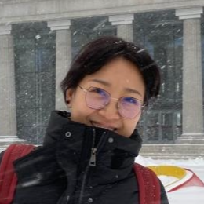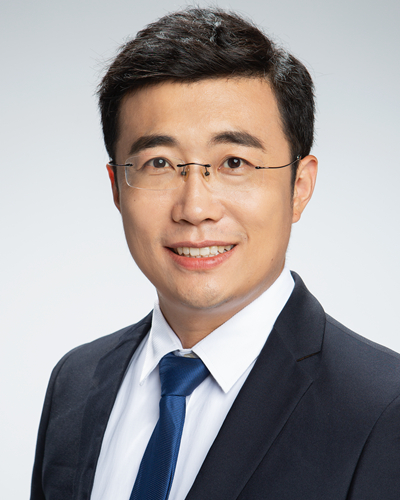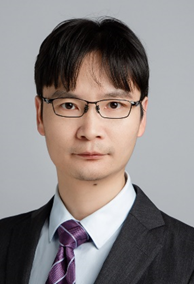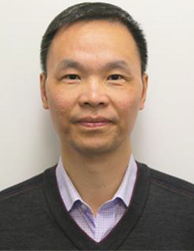

Prof. Wei Bian
Harbin Institute of Technology, China
Biography:
Prof. Wei Bian is a National High-Level Talent, a professor, and doctoral supervisor at the School of Mathematics, Harbin Institute of Technology. He earned his bachelor's degree in 2004 and his Ph.D. in 2009 from Harbin Institute of Technology. From 2010 to 2012, he conducted postdoctoral research at The Hong Kong Polytechnic University. Prof. Bian has long been dedicated to theoretical research on algorithms for nonsmooth and nonconvex optimization problems. He has led four projects funded by the National Natural Science Foundation of China, including three general projects and one youth project. In 2018, he was selected as a Young Scholar of the "Longjiang Scholars Program," and in 2019, he was honored with the National Young Talent title. He also serves as an editorial board member for the SCI journal JOTA (Journal of Optimization Theory and Applications) and as a council member of the Chinese Operations Research Society.
His research primarily focuses on optimization theory and algorithms.

Prof. Bo Wang
Beijing Institute of Technology, China
Biography:
Wang Bo, Ph.D., Director of the Student Innovation and Entrepreneurship Practice Center, Professor and Doctoral Supervisor of the School of Automation, Beijing Institute of Technology.
He concurrently serves as Deputy Secretary-General of the GNSS and LBS Association of China(GLAC) and Director of the Youth Working Committee. He also holds the position of Deputy Director of the National and Local Joint Engineering Research Center for "Intelligent Transportation Systems (ITS) Technology" under the National Development and Reform Commission (NDRC). Additionally, he is a member of the Academic Committee of the Key Laboratory of "Traffic Management Integration and Optimization Technology" (Ministry of Public Security) and the Key Laboratory of "Navigation and Location-based Services" (Ministry of Natural Resources), as well as an editorial board member of several important domestic and international journals.

Prof. Ding Derui
University of Shanghai for Science and Technology, China
Biography:
Prof. Ding is a National High-Level Young Talent and a Ph.D. holder. He currently serves as a professor and doctoral supervisor at the School of Optical-Electrical and Computer Engineering, University of Shanghai for Science and Technology. He received his Ph.D. in Control Theory and Control Engineering from Donghua University in December 2014. In June 2012 to September 2012, he worked as a Research Assistant at The University of Hong Kong. From March 2013 to March 2014, he conducted visiting research at Brunel University London under the sponsorship of the China Scholarship Council. From June 2015 to August 2015, he served as a Research Assistant at City University of Hong Kong.
His research primarily focuses on the control and filtering of stochastic systems.

Prof. Huiyu Zhou
University of Leicester, China
Biography:
Prof. Huiyu Zhou received a Bachelor of Engineering degree in Radio Technology from Huazhong University of Science and Technology of China and a Master of Science degree in Biomedical Engineering from University of Dundee of United Kingdom, respectively. He was awarded a Doctor of Philosophy degree in Computer Vision from Heriot-Watt University, Edinburgh, United Kingdom, supervised by Professors Patrick Green (Psychology) and Andrew Wallace (Computer Engineering).
Prof. Zhou heads the AI and Machine Learning Group and leads the Biomedical Image Processing Lab (BIPL) at University of Leicester. He was PGR Director of CMS (2022-2025), Director of MSc Programme (2018-2019) and Coordinator of MSc Distance Learning at Informatics (2018-2022), and currently is Deputy Director of Research Centre for Artificial Intelligence, Data Analytics and Modelling (AIDAM), Member of the Executive Group of Apollo-Leicester Centre for Digital Health and Precision Medicine (CDHPM) and Corresponding Member of the National Academy of Artificial Intelligence (NAAI). Prior to this appointment, he worked as Reader (2018-2020) at University of Leicester, and Lecturer (2012-2017) at the School of Electronics, Electrical Engineering and Computer Science, Queen's University Belfast (QUB). He was a visiting scholar of QUB during 2018-2020.

Prof. Nianyin Zeng
Xiamen University, China
Biography:
Prof. Zeng is a Ph.D. holder and serves as a professor and doctoral supervisor at Xiamen University. He has been honored with several scientific awards, including the Second Prize of the Invention Entrepreneurship Achievement Award from the China Invention Association, the Second and Third Prizes of the Natural Science Award of Fujian Province, the First Prize of the Natural Science Award of Chongqing, and the Second Prize of the Xiamen Science and Technology Progress Award. Additionally, he has received numerous accolades such as Xiamen University's "Nanqiang Young Top Talent," recognition as a high-level talent in Fujian Province and Xiamen City, Xiamen's Key Talent, Fujian Province's Distinguished Young Scholar, the International Scholar Exchange Fellowship from the Korea Foundation for Advanced Studies, Stanford University's Top 2% Most Cited Scientists, and Clarivate's "Highly Cited Researcher."
His main research focuses on intelligent data analysis (modeling, learning, optimization, and decision-making) and automation driven by artificial intelligence (AI in aviation/industry/healthcare).

Prof. Witold Pedrycz
University of Alberta, Canada
Biography:
Prof. Witold Pedrycz is a Professor in the Department of Electrical and Computer Engineering at the University of Alberta in Edmonton, Canada. He is a Fellow of the Royal Society of Canada, a Foreign Member of the Polish Academy of Sciences, and holds the position of Canada Research Chair in Computational Intelligence. He has previously served as President of the International Fuzzy Systems Association (IFSA) and President of the North American Fuzzy Information Processing Society (NAFIPS).
Prof. Pedrycz has been honored with numerous prestigious awards, including the Norbert Wiener Award from the IEEE Systems, Man, and Cybernetics Society, the IEEE Canada Computer Engineering Medal, the K. S. Fu Award from the European Centre for Soft Computing, the Killam Prize, the Fuzzy Pioneer Award from the IEEE Computational Intelligence Society, and the 2019 Meritorious Service Award from the IEEE Systems, Man, and Cybernetics Society.
His primary research interests encompass computational intelligence, fuzzy modeling and granular computing, knowledge discovery and data mining, fuzzy control, pattern recognition, knowledge-based neural networks, relational computing, and software engineering.
Updating...